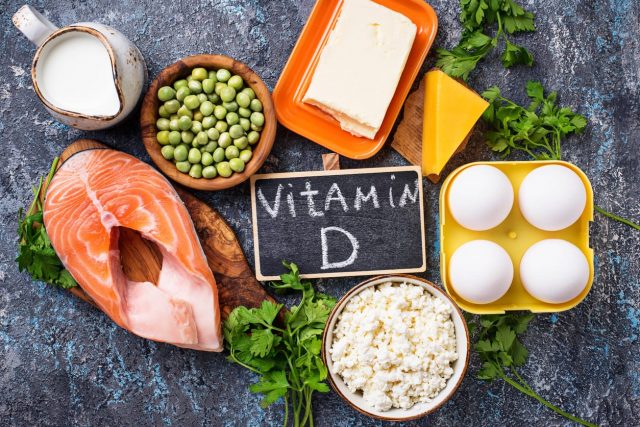According to a new study published in the journal PLOS ONE, those with a vitamin D deficiency are more likely to develop a severe or critical case of COVID-19.
The research is based on data from the first two coronavirus waves in Israel, which occurred before vaccinations were widely available. Vitamin supplements aren’t a replacement for immunizations, but they can help boost immunity levels, according to the researchers
What Was The Study All About?
Between April 2020 and February 2021, the research team looked at vitamin D levels in over 250 patients admitted to Galilee Medical Center with a positive COVID-19 test. The vitamin D levels were determined using tests performed between 14 and 730 days prior to the hospitalisation as part of normal bloodwork or for vitamin D deficiency.
Patients with a deficit in vitamin D were 14 times more likely to have COVID-19 that was severe or serious. Furthermore, those with insufficient vitamin D levels had a 25.6 percent mortality rate, compared to 2.3 percent for those with adequate levels.
After researchers took into account the patients’ age, gender, and history of chronic conditions, the inequalities remained.
“We found it remarkable, and striking, to see the difference in the chances of becoming a severe patient when you are lacking in vitamin D compared to when you’re not,” The Times of Israel spoke with Amiel Dror, MD, the study’s principal author and a doctor at Galilee Medical Center.
How does Vitamin-D help in dealing with COVID?

“What we’re seeing when vitamin D helps people with COVID infections is a result of its effectiveness in bolstering the immune systems to deal with viral pathogens that attack the respiratory system,” he said. “This is equally relevant for Omicron as it was for previous variants.”
Recent research has found associations between vitamin D insufficiency, severe COVID-19, and hospitalisation, while researchers are still debating whether the coronavirus is to blame for the shortfall.
Dror and colleagues looked at the data from Israeli patients to gain a better picture of their vitamin D levels before COVID-19 infection in order to address that question.
To The Times of Israel he said, “We checked a range of timeframes and found that wherever you look over the 2 years before infection, the correlation between vitamin D and disease severity is extremely strong.
It emphasizes the value of everyone taking a vitamin D supplement during the pandemic, which, consumed in sensible amounts in accordance with official advice, doesn’t have any downside.”
Also Read: Two Omicron Variant Symptoms That May Appear While You Eat
Vitamin D is produced naturally in human skin and requires direct sunshine exposure (specifically, UV-B). No amount of artificial light, no matter how brilliant, will suffice.
Given that the pandemic has kept many people confined to their homes for more than two years, it’s easy to imagine that a significant number of people have slipped below the standard for acceptable vitamin levels, which is at least 20 nanograms per millilitre of blood.
However, new research suggests that even this is too low: A concentration of 50 nanograms per millilitre is currently recommended. In patients hospitalised with COVID, levels below the threshold are thought to elicit inadequate innate immune responses.
In comparison to dummy medications (placebo), sufficient vitamin D reduced the chance of getting other respiratory infections, according to research published in The Lancet before the discovery of COVID variants.
What Are The Sources Of Vitamin-D For The Body?
Diet has a significantly less impact on vitamin absorption and maintenance. It’s found in foods including fresh fatty fish, mushrooms, egg yolks, full-fat yoghurt, cow liver, and duck, and it’s soluble in fat rather than water. Vitamin D3 pills are the only realistic option to ensure appropriate levels for most persons who do not get enough sun exposure.
The vitamin regulates calcium metabolism throughout one’s life, which is necessary for the creation and maintenance of healthy bones. It protects toddlers from rickets and adults from osteoporosis.
Brittle bones and, as a result, otherwise avoidable fractures develop from the latter. Individuals with muscle and bone weakness are also more likely to fall.
Its active metabolite functions as a hormone that affects the kidneys and other organs, and it has been linked to heart disease, diabetes, cancer, and immunological cells (a complex topic beyond the scope of this post).
Disclaimer: This article has been fact-checked
Sources: WebMD, Psychology Today +more
Image Source: Google Images
Find the blogger @ParomaDey
This post is tagged under health, coronavirus, SARs-COV-2, covid, alpha, beta, delta, Omicron, Delmicron, third wave, World Health Organization, third wave, Satyendar Jain, Sutra model, IIT Kanpur, European Medicines Agency, Dr Monica Gandhi, Bloomberg, California University, Professor Ian Jones, University of Reading, Dr Maria Van Kerkhove, Dr. Mike Ryan, Steve Biko Academic Hospital Complex, UK Health Security Agency, ZOE, National Health Service, Vitamin-D, The Times of Israel, PLOS ONE, Amiel Dror, Galilee Medical Center, rickets, heart disease, diabetes, cancer
We do not hold any right, copyright over any of the images used, these have been taken from Google. In case of credits or removal, the owner may kindly mail us.
Read More:
ResearchED: Is There A Relationship Between COVID-19 And Heart Attacks?








































